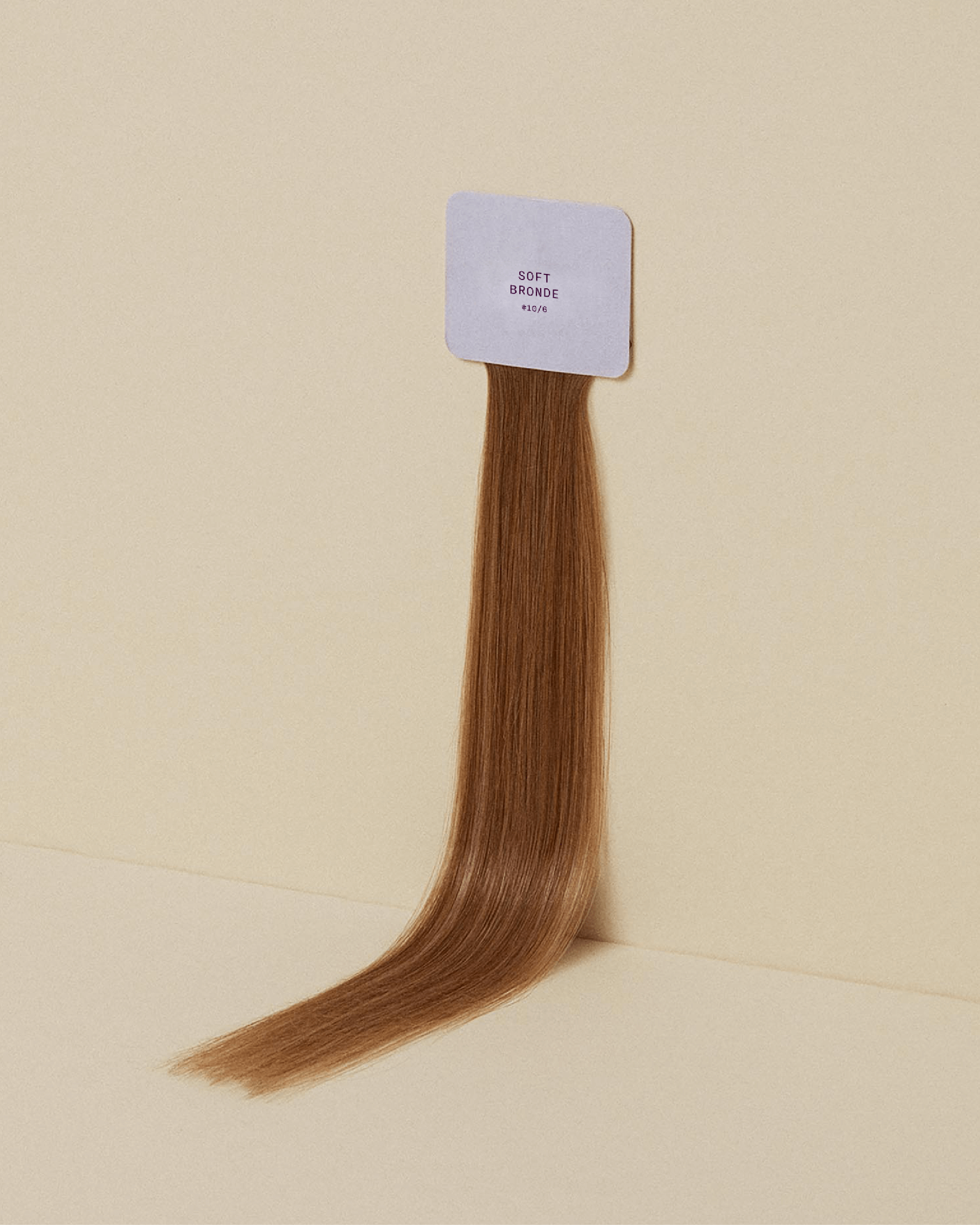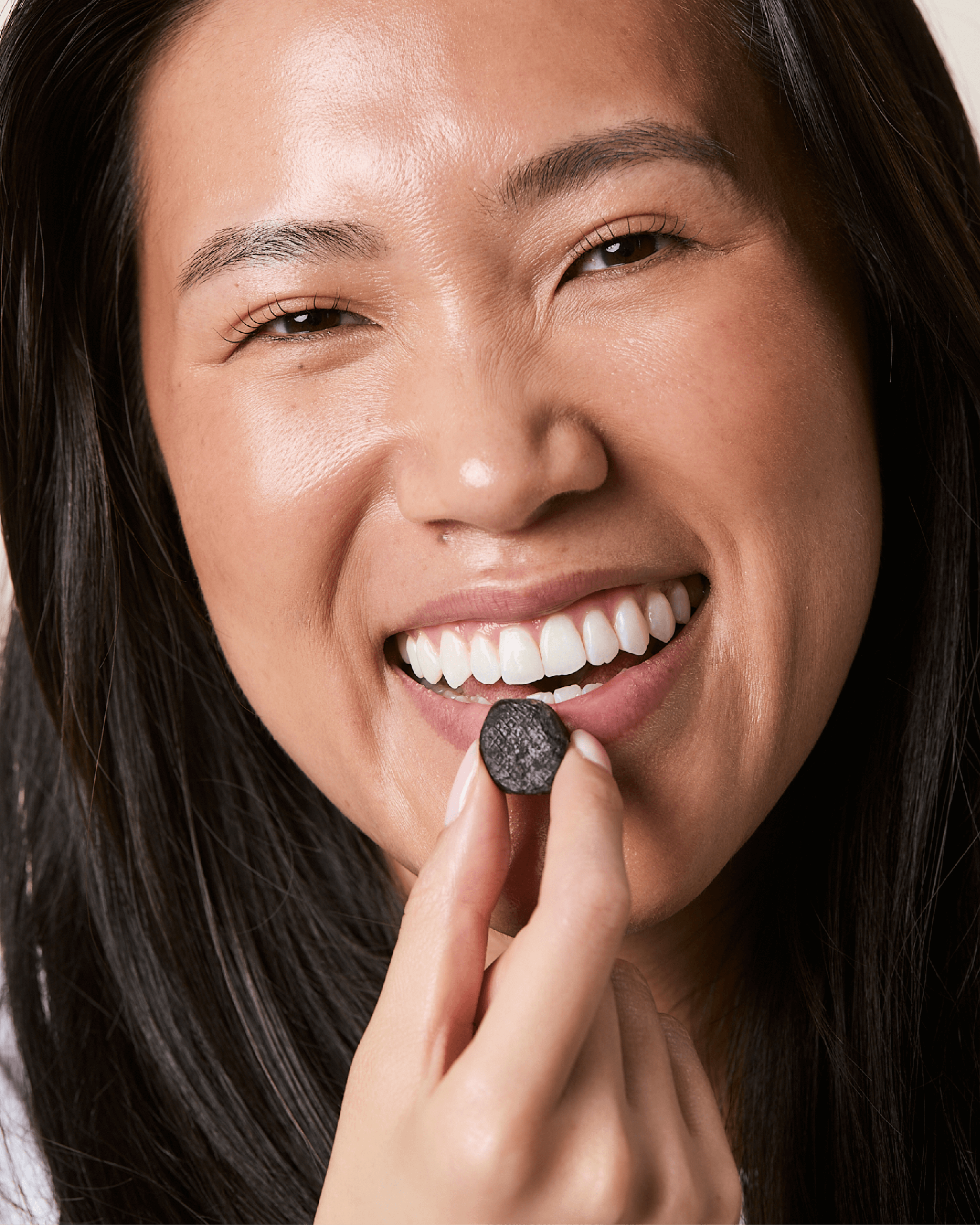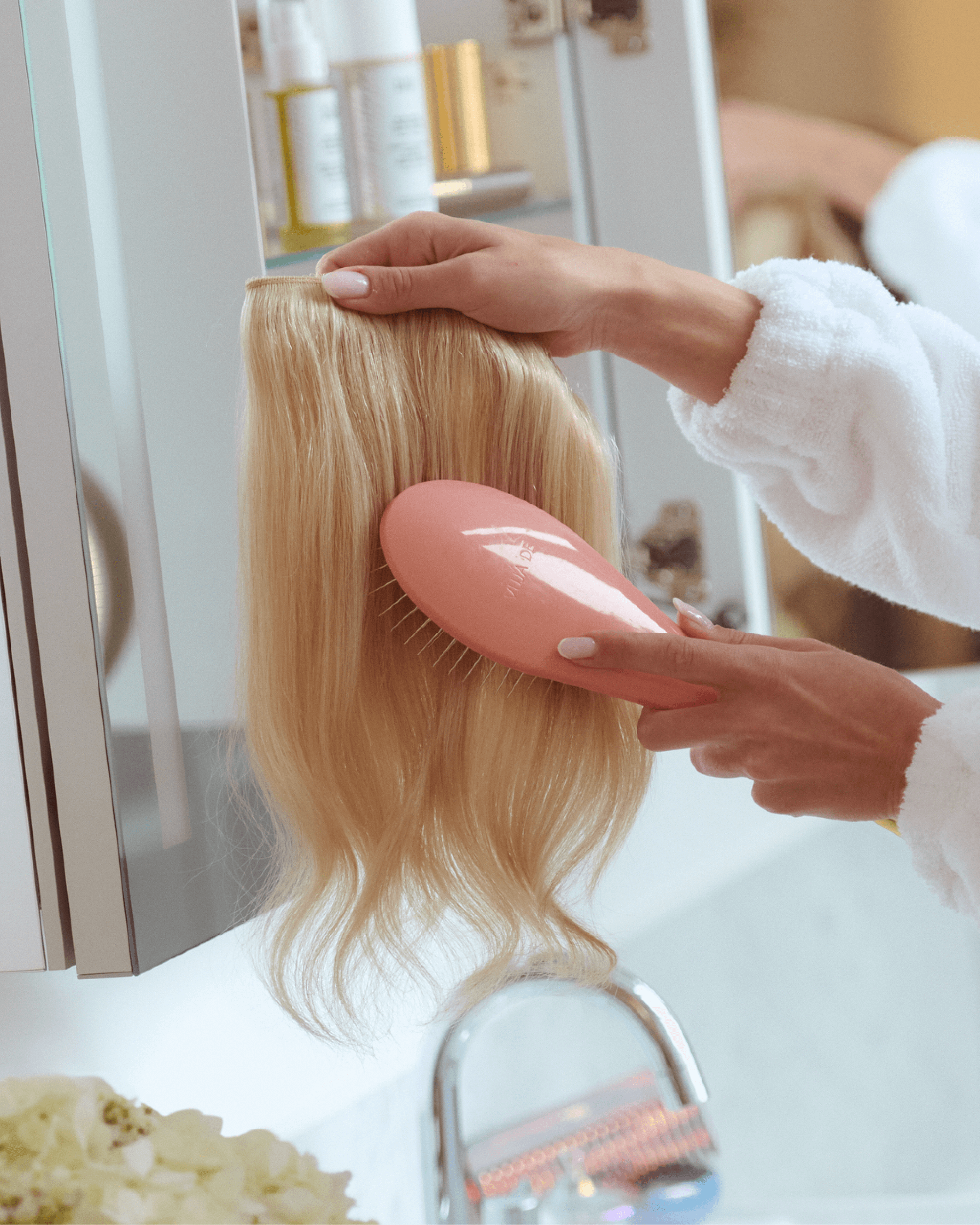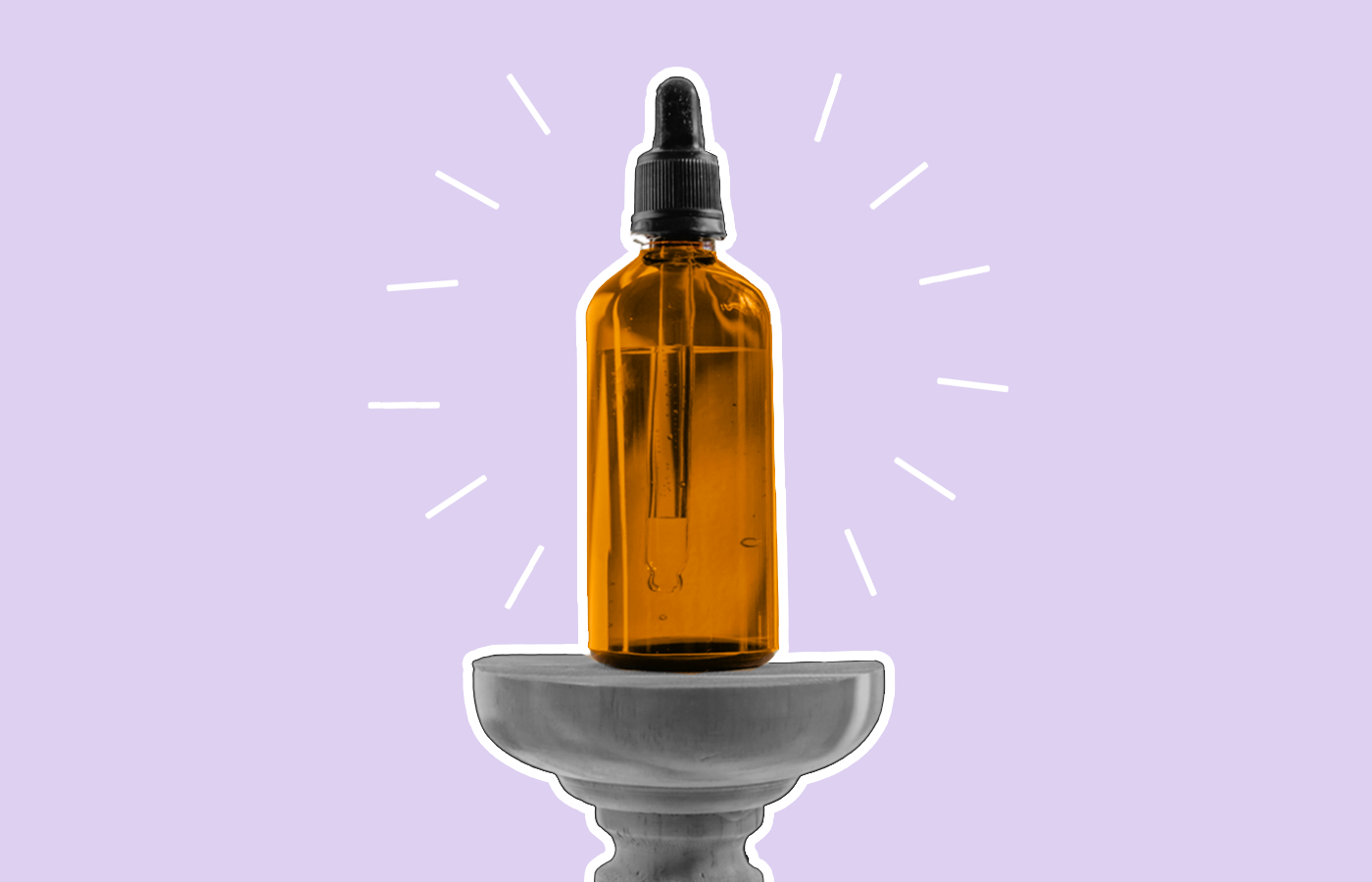For those using castor oil for hair, be it your go-to moisturizer or a DIY scalp treatment, you’ll be happy to know this little oil is jam-packed with tons of other benefits and uses! Cold-pressed from small castor beans, castor oil gets its it-girl status from growth stimulating ricinoleic acid, vitamin E, and fatty acid makeup.
These naturally forming ingredients are what makes castor oil’s benefits for hair pretty braggable. From using castor oil for hair growth, to reducing hair fall, you can pair castor oil with other oils to enhance its already impressive powers. Pick and choose from these castor oil hair mask recipes to best suit your goals!
(Scroll to the bottom for instructions for using a castor oil hair mask).
Castor Oil for Hair Growth
Does castor oil stimulate hair growth? Yes! But more specifically, ricinoleic acid does. With a high concentration of this rare fatty acid, plus vitamin E and Omega-6, castor oil’s unique makeup is what makes everyone flock to castor oil for hair growth.
Ricinoleic acid is only found in castor oil (and at a super high concentration). It works by activating certain receptors in your body such as hair follicles, dilating them, and sending a rush of nutrient-rich blood to the source. ICYMI: blood flow and cell turnover is how your hair grows!
Similar to castor oil for hair growth, aloe vera does an amazing job too! Rich in proteolytic enzymes, using both aloe vera and castor oil for hair growth is super potent. Combine both and massage into your scalp using the inversion method. Leave on overnight and rinse out with warm water in the am. Top tip: always use Jamaican black castor oil for hair masks that are geared towards growth—it has higher absorption!
READ NEXT: 5 Common Haircare Mistakes and How To Fix Them
Castor Oil for Hair Loss
Like using castor for hair growth, you can use castor oil for hair loss similarly. If you’ve suddenly been experiencing more hair loss, you can lean on castor oil’s nourishing ingredients to strengthen the strand. Vitamin E and protein are stars here: both known for repairing the tissues of our body and readily available when using castor oil for hair loss!
Pair your castor oil with peppermint oil and/or rosemary oil. Why? Peppermint oil is known to increase the depth of follicles. While rosemary oil is scientifically proven to combat the hair-thinning hormone, dihydrotestosterone in your follicle.
Hydrate and Moisturize with Castor Oil
This is likely what you’ll first notice when using castor oil for hair: that deep moisture! Thanks again to Vitamin E, omegas, and fatty acids, castor oil works as an amazing DIY deep conditioner for hair. A comedogenic (AKA pore-clogging), it’s both a humectant and an occlusive so we don’t suggest using it on your skin unless you’re dabbling in slugging.
But for how to apply castor oil for hair, you can solely use castor oil from root to tip. Or create a castor oil hair mask with honey to get mega moisture. Honey is also a moisture-securing humectant.
READ NEXT: Dry Scalp or Dandruff: How to Spot the Difference
Nourish Your Scalp with Castor Oil
For any hair masks that focus on the scalp, use Jamaican black castor oil. As mentioned, using Jamaican black castor oil for hair is the best castor oil for scalp use because it opens up your cuticle and allows for better absorption of those nourishing ingredients.
Try this: mix ½ cup of castor oil with one egg in a blender. After you apply to the scalp, leave it on for 15-30 minutes, and wash out with cool to warm water. This castor oil hair mask can be made with any of your fave essential oils for an even bigger vita-boost too!
Castor Oil for Thicker Hair
Similar to how castor oil stimulates hair growth, it can thicken hair—or at least give a thickening effect! This is caused by two things: its bacteria-clearing properties help clear out follicles that are having trouble growing AND its star ingredients stimulate hair growth. For those looking for thicker hair, a castor oil hair mask is especially good for smaller areas of hair like eyebrows or on baby hairs where growth is stimulated. Use alone or mix with lemon oil to revitalize cuticles!READ NEXT: Should You Exfoliate Your Scalp? Yes And Here's Why.
Balance Your Hair's pH with Castor Oil
A lesser-known fact about castor oil’s benefits for hair is this pH balancing effect. For hair, a high pH can appear as a dry, itchy scalp when its been over-processed or is naturally dry. For this, use regular castor oil paired with an equally amazing pH balanced oil like peppermint to restore the natural acidity of your scalp.
For hair that has high porosity, you likely have a low pH—naturally curly, kinky, or coarse hair tends to be in this category! To balance your hair’s pH with castor oil, just opt for Jamaican black castor oil for it’s more alkaline makeup (AKA higher pH).
Eliminate Split Ends and Frizz with Castor Oil
For damaged hair, especially those experiencing dehydration after bleaching, castor oil is an amazing conditioning product. Not only will a castor oil hair mask prevent further breakage (thanks, omegas) but it’ll make split ends and frizz much less noticeable. This is due to the moisturizing power of vitamin E and the fatty acids that maintain moisture in the cuticle.
To mask split ends and frizz, use cold-pressed castor oil along with an avocado. Avocados are ace in softening the hair and sealing cuticles because of their minerals and vitamin makeup!
Add Shine and Reduce Frizz with Castor Oil
With split ends and frizz managed, you’ll be happy to know you can boost shine with a castor oil hair mask too! Of course, the moisturizing aspects of omega fatty acids aids in the breakage-look, but if you combine banana, olive oil, and castor oil you can get commercial-level gloss at home too! Work all over hair, wrap in a towel, and leave on overnight to reduce frizz and get shine.READ NEXT: How to Hydrate Hair After Bleaching
Castor Oil Tames Your Curls
Curly girls already know castor oil benefits for hair, but if you don’t, this super oil should be your go to! Use with a thinner (but equally nourishing) carrier oil like coconut or jojoba to help spread your castor oil hair mask throughout your curls—especially those with denser locks! To get the full benefits of castor oil for hair, slick it through a protective sleep style for anti-breakage, deeply moisturizing, and curl-taming power. Watch below for some of our fave styles:
Fight Infections with Castor Oil Mask
Excess scalp sebum? Castor oil isn’t just great for masking in moisture, but its antioxidant properties are also anti-inflammatory, anti-microbial, anti-bacterial! Use castor oil for clarity by focusing on the scalp and pairing with purifying essential oils. We love adding tea tree oil (for antifungal), bergamot (for healing), and clove (antiseptic).How to Apply Castor Oil Masks to Hair
No matter how you mask it, castor oil benefits for hair are vast! Some quick rules of thumb for how to apply castor oil to hair and get the most out of your castor oil hair mask are:- Warm the oils in your palms before applying: like our pores, warming our haircare before applying allows for better penetration to the cuticle.
- Similarly, wrap hair in a towel (or warm towel for a speedy mask): this also protects your face and pillow from transferring oil.
- Use castor oil for hair while you sleep: throw your hair in a protective sleep style to lock in your mask and protect locks from friction during your 8 hours.
-
Always use the inversion method or other hair growth massage techniques: this sends a rush of blood to your scalp, which makes using castor oil for hair growth even better.
Read more
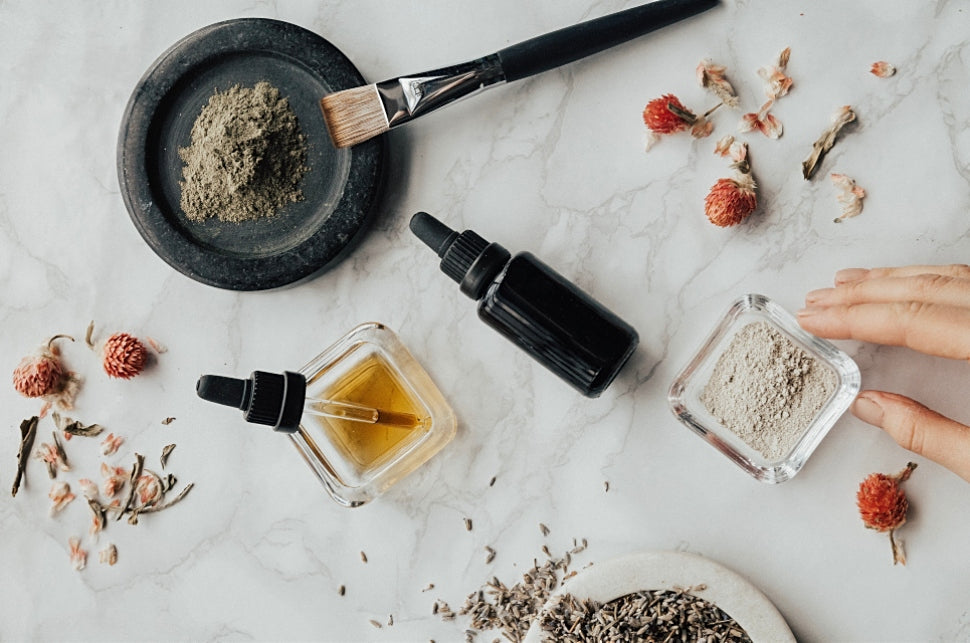
Part with your razor TODAY!
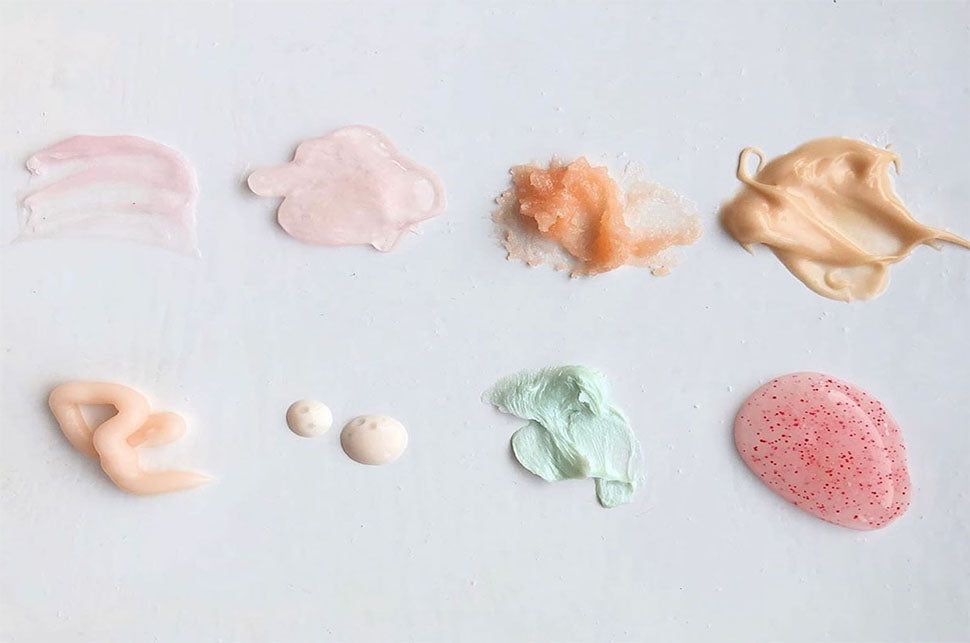
They say love is the important thing in life, but honestly, I think its skincare. However you can sometimes have the most comprehensive steps for a skincare routine, and (like most of my crushes) ...
